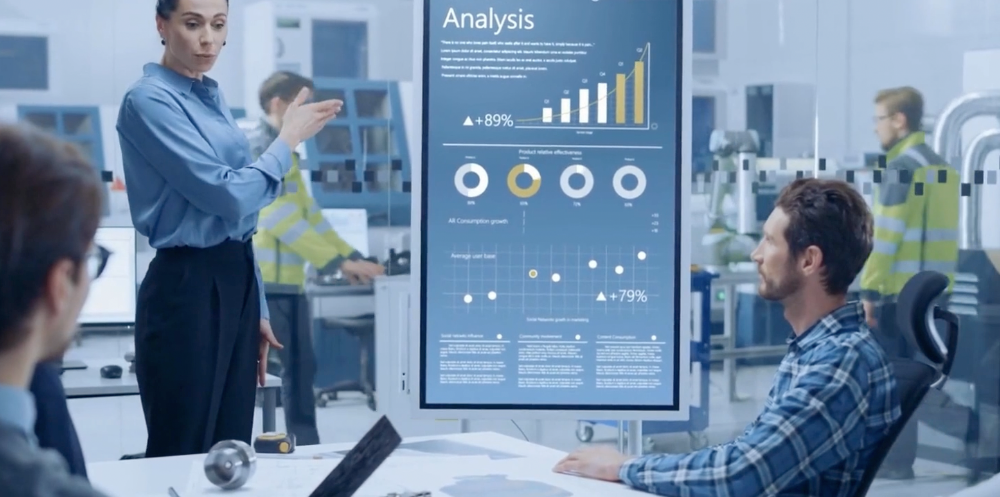MANAGEMENT ENGINEERING
MASTER’S DEGREE
The Management Engineer is characterized by the ability to optimally combine technological knowledge with economic, organizational, and management skills to solve complex business problems of a cross-cutting and interdisciplinary nature.
LANGUAGE OF INSTRUCTION
One curriculum in Italian and one curriculum in English
Class
LM-9 – class for degree programmes in the field of Industrial Engineering
COURSE COORDINATOR
Prof. Anna Nosella
Contact the Course coordinator here
LOCATION
Vicenza
DURATION: 2 years
ADMISSION DETAILS
Click here for the Master’s Degree application details
SCHOLARSHIPS
Check all the opportunities here.
AFFILIATION DEPARTMENT
Dipartimento di Tecnica e Gestione dei Sistemi Industriali
Visit the web site DTG
ACCESS REQUIREMENTS
- A minimum three-year undergraduate degree (or equivalent) in Management Engineering, Industrial Engineering, or related subjects with proven skills in Engineering.
- Additional entry requirements – Entry title and GPA
Please verify country-based specific entry title and GPA requirements at the following link. - B2 Level (CEFR) or equivalent certificate. Please check out this link for the full list of accepted certificates, minimum scores, and exemptions.
For more information please check out this link.
APPLICATION DEADLINE
- For Italian Qualification check this link
- For Foreign Qualification check this link
For more information regarding the application process, please check our FAQ for international students.
Management Engineering
The Management Engineer is an engineer with multidisciplinary skills, able to cover organizational and managerial roles that also require technical and scientific knowledge. The Master’s Degree in Management Engineering enables students to acquire distinctive skills in operations, analytics and innovation management that are valued and required in the job market (98% employment rate one year after graduation).
BRIDGE MANAGEMENT AND ENGINEERING FOR A SMARTER FUTURE!
ACADEMIC
The Master’s Degree in Management Engineering of the University of Padua aims to train highly qualified professionals specialized in the design, management, and innovation of highly complex production and service systems. The skills acquired, which are of technical/engineering, organizational, managerial, economic, and analytical nature, enable the Management Engineer to understand the various components of advanced and interrelated systems. They also enable the Management Engineer to effectively govern the analysis, design, implementation, and management of innovative solutions. Examples include: feasibility studies for the introduction of new processes, products, or services; identification of opportunities for business performance improvement; application of lean management techniques; definition of business plans and strategic make-or-buy decisions; supply and capacity management decisions; logistics set-ups; design of waste reduction and energy management initiatives/systems; design and management of digital transformation processes. Moreover, the presence of a curriculum in Italian, offering three specialized tracks in “Operational excellence”, “Strategia e controllo” and “Innovazione e sostenibilità”, as well as a curriculum in English, offering other three specialised tracks in “Smart operations”, “Analytics for business” and ”Technology management”, give students the opportunity to craft their educational career based on specific interests.
COMPETENZE
Your content goes here. Edit or remove this text inline or in the module Content settings. You can also style every aspect of this content in the module Design settings and even apply custom CSS to this text in the module Advanced settings.
COMPETENZE
Your content goes here. Edit or remove this text inline or in the module Content settings. You can also style every aspect of this content in the module Design settings and even apply custom CSS to this text in the module Advanced settings.
COMPETENCIES
The Master’s Degree graduate is characterized by the ability to adopt a multidisciplinary approach, as a result of comprehensive cross-disciplinary training in the areas of engineering, economy and management, quantitative methodologies and analytics, and sustainability.
At the same time, both the curriculum in Italian and the curriculum in English offer specialised tracks in the areas of operations (also with a digital perspective), data analysis for decision making and for strategic purposes and control, and technological innovation (also with a sustainability perspective) to develop distinctive competences that respond to the increasingly demanding and sophisticated requirements of the job market. These competences will be matured through not only traditional classroom lectures, but also other training activities as multiple seminar activities, tutorials and laboratory exercises, company visits, discussions and case study presentations, project work, and business games and simulations, thus developing both hard and soft skills.
EMPLOYMENT OPPORTUNITIES
The Management Engineer is highly sought after by companies because of her/his ability to adapt to a wide variety of environments, both in industrial and service sectors, as well as in large and small-sized enterprises. The Management Engineer can be employed in:
- Manufacturing companies,
- Consulting firms,
- Public administration and services (engineering, banking, insurance, energy, transportation, facilities, etc.)
Management Engineers can work in all major business functions: General Management, Production Planning and Control, Sales and Marketing, Research & Development, Engineering and Quality, Purchasing/Procurement, Management Control and Financial Analysis, Information Technology and Systems, Logistics, Human Resources.

Teachings of the Master’s Degree in Management Engineering
Curriculum in Italian
(CORE TEACHINGS + 1 PATH)
CORE TEACHINGS
4 COMPULSORY TEACHINGS (36 ECTS)
- Organizzazione della produzione e dei sistemi logistici 2
- Impianti industriali
- Logistica industriale
- Data driven marketing
2 TEACHINGS OUT OF 4 (18 ECTS)
- Applicazioni industriali metallurgiche
- Gestione dell’energia
- Meccatronica e automazione
INTERNSHIP (6 ECTS)
THESIS (15 ECTS)
PATHS
Operational excellence
Optimization of business processes, improvement of operational efficiency, and enhancement of organizational competitiveness.
2 SPECIALISED TEACHINGS (18 ECTS)
- Gestione della varietà del prodotto
- Sistemi integrati di produzione
2 TEACHINGS OUT OF 3 (12 ECTS)
- Soluzioni digitali per il management
- Gestione snella dei processi
- Gestione sostenibile dell’innovazione e dei progetti
2 RECOMMENDED TEACHINGS (12 ECTS)
Free choice
- Digital operations
- Additive manufacturing
Strategia e controllo
Definition of business strategies, management control, and finance to support decision-making processes.
2 SPECIALISED TEACHINGS (18 ECTS)
- Gestione della varietà del prodotto
- Innovazione e sviluppo agile dei prodotti
2 TEACHINGS OUT OF 3 (12 ECTS)
- Strategia e modelli di business sostenibili
- Finanza aziendale
- Controllo di gestione
2 RECOMMENDED TEACHINGS (12 ECTS)
Free choice
- Game Theory
- Business analytics for decision making
Innovazione e sostenibilità
Design and management of innovation processes to enhance companies' competitiveness through responsible and future-oriented practices.
2 SPECIALISED TEACHINGS (18 ECTS)
- Sistemi integrati di produzione
- Innovazione e sviluppo agile dei prodotti
2 TEACHINGS OUT OF 3 (12 ECTS)
- Strategia e modelli di business sostenibili
- Gestione sostenibile dell’innovazione e dei progetti
- Gestione delle energie rinnovabili
2 RECOMMENDED TEACHINGS (12 ECTS)
Free choice
- Circular economy
- Quality and metrology in manufacturing
COMPETENCIES IN ACTION: PRACTICAL TRAINING FOR THE FUTURE (3 ECTS)
Learn about the courses
- Act-In Class (in English)
- ERP and Digital Transformation (in English)
- Communication and soft skills lab (in Italian)
- International scenarios: financial risks and impacts on firms (in Italian)
- Sustainability in action: innovations and models for responsible business (in Italian)
Curriculum in English
(CORE TEACHINGS + 1 PATH)
CORE TEACHINGS
4 COMPULSORY TEACHINGS (36 ECTS)
- Smart operations and supply chain management
- Digital warehousing and transportation
- Material flow systems and logistic network
- Digital marketing & International management
2 TEACHINGS OUT OF 4 (18 ECTS)
- Sustainability and digitalization of metallurgical processes
- Energy management and digitalization
- Machine learning clustering and data mining
- Digital twins for automation
2 ELECTIVE TEACHINGS (12 ECTS)
See the full list
- Circular economy
- Urban mining and circular economy
- Game Theory
- Industrial and collaborative robotics
- Innovation in metallurgical production
- Additive manufacturing
- Ottimizzazione della fabbricazione manifatturiera
- Gestione snella dei processi
- Finanza aziendale
- Controllo di gestione
- Gestione delle energie rinnovabili
- Soluzioni digitali per il management
- Any other teaching of 6 ECTS belonging to any specialized program
INTERNSHIP (6 ECTS)
THESIS (15 ECTS)
PATHS
Smart operations
Design and management of intelligent systems, supporting companies in thriving in an increasingly digital and interconnected world.
2 TEACHINGS OUT OF 3 (12 ECTS)
- New product and project management
- Digital operations
- Service operations management
2 TEACHINGS OUT OF 3 (18 ECTS)
- Digital customization
- Strategy and digital transformation
- Digital manufacturing
Analytics for business
Application of advanced analytical techniques to marketing, operations, and supply chain, helping organizations transform data into competitive advantage.
2 TEACHINGS OUT OF 3 (12 ECTS)
- Business analytics and decision making
- Digital operations
- Data driven quality management
2 TEACHINGS OUT OF 3 (18 ECTS)
- Organizational change and performance measurement
- Strategy and digital transformation
- Digital manufacturing
Technology management
Driving technological development, managing disruptive innovations, and implementing digital solutions, enabling organizations to stay competitive in rapidly evolving markets.
2 TEACHINGS OUT OF 3 (12 ECTS)
- Technology and innovation management
- Maintenance management
- Quality and metrology in manufacturing
2 TEACHINGS OUT OF 3 (18 ECTS)
- Digital customization
- Organizational change and performance measurement
- Digital manufacturing
COMPETENCIES IN ACTION: PRACTICAL TRAINING FOR THE FUTURE (3 ECTS)
Learn about the courses
- Act-In Class (in English)
- ERP and Digital Transformation (in English)
- Communication and soft skills lab (in Italian)
- International scenarios: financial risks and impacts on firms (in Italian)
- Sustainability in action: innovations and models for responsible business (in Italian)



